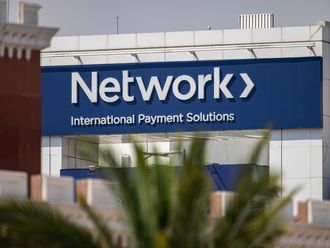Dubai: Economists expect the government to pursue a more gradual fiscal consolidation path and extension of deadlines for achieving fiscal targets.
“We see a further fall in the deficit in 2018 to 6 per cent of GDP, albeit at a slower pace than that seen in 2017. This is as the percentage rise in oil growth slows and we see moves to a slightly more expansionary fiscal position. Official comments suggest that Saudi Arabia is likely to push out its balanced budget target to 2023 from 2020. This should result in a more gradual fiscal consolidation path as the government looks to balance it with the growth outlook,” said Monica Malik, Chief Economist of Abu Dhabi Commercial Bank (ADCB).
Recent indications from Saudi government points to a likely push back of the target to reach fiscal balance by 2020 to 2023. “ It is in line with our view that the government wants to achieve an uneasy balance between austerity and activity, and try to support growth. We already suggested that a private sector support package was needed to prevent a sustained recession in the non-oil sector and shield it from the impact of fiscal reforms,” said Jean-Michel Saliba, Mena economist of Bank of America Merrill Lynch.
Analysts say the fiscal stance for 2018 is likely to signal more clearly the intention of authorities and the extent of potential loosening. “We anticipate that the government may decide not to announce a fully fleshed out revised Fiscal Balance Programme so as to allow itself maximum discretion and room to manoeuvre according to the prevailing economic conditions. However, we expect the government to provide more clarity on future fiscal reforms as part of the 2018 budget,” said Saliba
Anti-corruption drive
The recent anti-corruption efforts are expected to support economic reform efforts in the country. The establishment of a supreme anti-graft committee, chaired by Crown Prince Mohammad Bin Salman has led to the arrest of high-profile Princes, Ministers, former Ministers and prominent businessmen. The Attorney General suggested that arrests are only the end of the first phase of the probe, a recent BofA Merrill Lynch report said.
Analysts say the possible confiscation of embezzled funds to return them to the state treasury is unlikely to provide much support to Saudi Arabian Monetary Authority’s (SAMA) forex reserves.
A number of people under investigation have had their assets frozen and Saudi banks are said to have implemented a freeze on the suspected bank accounts, as per press reports. “Our analysis of the Net International Investment Position suggested a maximum of $100 billion (Dh367 billion) in offshore funds was held by the private sector excluding banks and investment funds at end-2015. We would expect only a small fraction of that to be at risk within this probe, and expect assets frozen to include material domestic holdings. Assets being confiscated will likely require proof of links to corrupt practices and may thus end up being a fraction of total assets frozen,” BofA Merrill Lynch said in a note.











